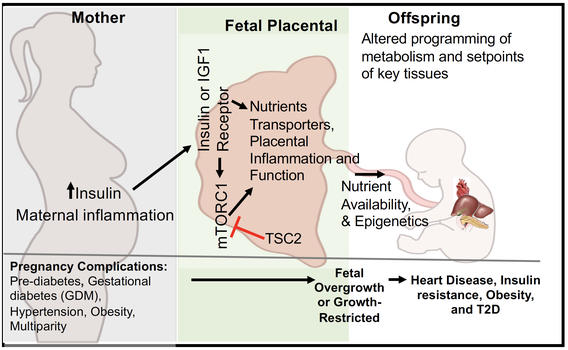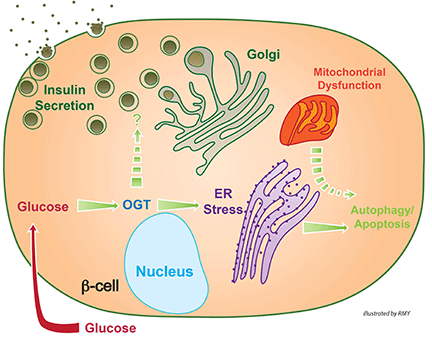
What makes us the way we are? Why are some people predisposed to be overweight? How is it that some of us are prone to Type 2 diabetes?
Obesity and Diabetes are complex diseases that significantly impact many individuals and impose substantial costs on our society. They are underlying causes of numerous deaths, such as those from cardiovascular disease and cancer. Finding a cure for these complex diseases will take time, and many labs are focused on this goal. Our lab is dedicated to preventing the onset of obesity and diabetes, aiming to set the next generation on a path to a healthier and more enjoyable life.
Our research aims to understand the developmental origins of metabolic dysfunction in insulin resistance, obesity, and type 2 diabetes. We are particularly interested in the early life origins of insulin-producing beta-cell dysfunction and in identifying novel endogenous modulators of insulin secretion and regeneration for potential treatments for both type 1 and type 2 diabetes. We use human samples, physiological and genetic animal models to assess the roles of key nutrient-sensor proteins like mTOR, AMPK, and OGT in the placenta or pancreas and how they can program offspring tissues setpoint during the developmental period. This can impact their function and eventual development of metabolic syndrome, insulin resistance, obesity, and diabetes in adulthood. Identifying modifiable risk factors is key to decreasing the incidence of metabolic dysfunction and inflammation in obesity and type 2 diabetes.

The long-term research goal of the Alejandro Lab is to stop the vicious cycle of diabetes by launching a multi-pronged research program.

One research objective of our lab is to understand how placental insufficiency induced by multiple factors (maternal obesity, parity, diabetes, or preeclampsia) during pregnancy alters the adult offspring's beta-cell function and susceptibility to obesity and diabetes. We aim to identify the mechanistic link between beta-cell programming and sensitivity to cellular stress involving ER stress, oxidative stress, autophagy, and mitochondrial stress in chronic hyperglycemia and hyperlipidemia conditions.
A second objective involves studying the roles of nutrient proteins mTOR, AMPK, and OGT in beta-cell development, function, and regeneration. We use a diverse range of techniques, from epigenetics, electrophysiology, and biochemistry to molecular approaches in vitro and whole animal in vivo phenotyping of glucose metabolism and beta-cell function.
Finally, we provide an extraordinary training environment and experiences for our trainees, utilizing the lab as a vessel to cultivate the next generation of competent scientists capable of tackling our society's medical research challenges.